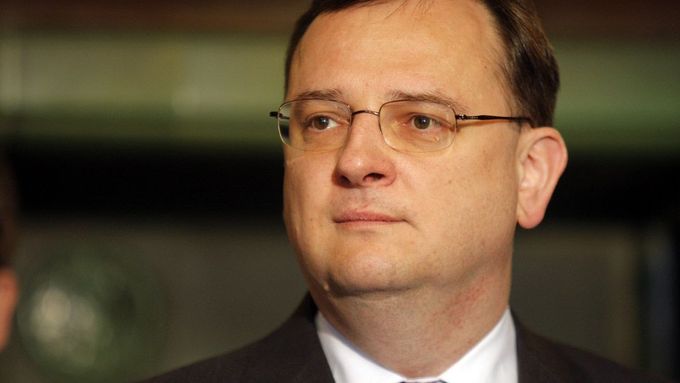Prague - The government of the Czech Republic will fall withing the space of weeks.
This simple and gloomy prognosis comes from a comparison of Transparency International's corruption indexes of the EU member states.
In six EU members states, the index produced by the international corruption watchdog has fallen drastically in the three years following the outbreak of the global crisis in 2008. In five of them, governments have fallen in the last six months, way before their official terms were over.
The last one to stand is the Czech government. From all the current EU governments, it is by far the most vulnerable and any serious problem can bring it to an end. And the year 2012 will offer a rich variety of possible stressors.
Uneasy coalition carries on: 2011 in Czech politics
The governments have fallen in Latvia, Slovenia, Slovakia, Greece and Italy. Their corruption indexes have fallen roughly by one point on a ten-point scale in the last three years, and the governments have suffered the result in the last six months.
The governments fell because of corruption scandals in Latvia, too harsh reforms in Slovenia and a coalition crisis over the EFSF in Slovakia. In Greece and Italy, elected governments perceived as incompetent to handle the debt crisis were replaced by technocrats.
Any of these four scenarios may replay itself in the Czech Republic.
A serious corruption affair involving a key government member would likely break the government's neck - as it did in Latvia.
Corruption: Czech economy's hidden and growing problem
The Czech government appears to be aware of the second, Slovenian scenario, and remains rather cautious in implementing austerity measures. VAT has increased in the first day of 2012, but other key reforms - including an increase of health insurance premiums and pension cuts - will not be implemented before 2015.
But still, the reforms have already caused the largest strike in the last 20 years.
PRAGUE STRIKE: PM Nečas speaks of "political act"
Another risk factor is the lack of agreement among the Czech government parties over the way the EU is handling its debt crisis. Public Affairs and a part of the Civic Democratic Party are against the idea of the Czech Republic lending money to the IMF, while TOP 09 considers such a step a necessity. A similar disagreement brought the Slovakian government of Iveta Radičová to a premature end. However, the issue appears to be less explosive in the Czech governing coalition.
The Czech Republic had a technocratic government as recently as in 2009, when a caretaker government replaced the previous elected government of Mirek Topolánek in order to prevent the budget deficit it had produced from further growing. Now, a large deficit is piling up again, as the government's 2012 budget is planned for an unrealistically optimistic estimate of the economic growth of 2.5 percent. An uncontrolled growth of the government deficit may lead to a criticism by the EU and calls for another technocratic government in the Czech Republic.
Czech 2012 GDP growth estimate revised from 2.5 to 1%
At the mercy of eurozone crisis: Czech economy in 2011
Of course, there is still a fifth scenario - the center-right government of PM Petr Nečas would manage to avoid all the traps discussed above and survive 2012.








